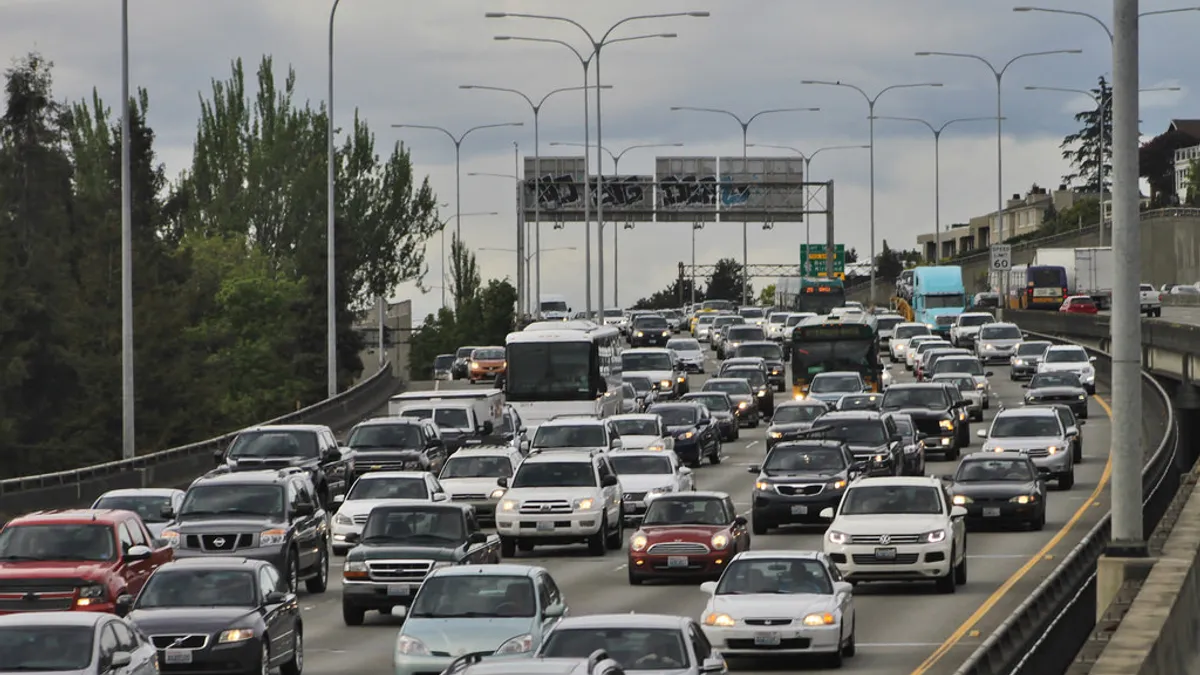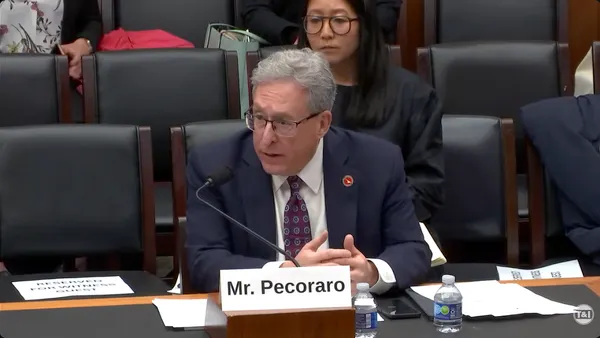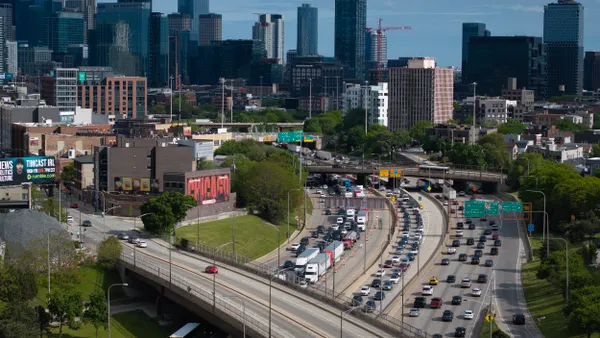Dive Brief:
- The Seattle City Council plans to debate a resolution requiring a minimum base fare for ride-share trips, according to GeekWire and others.
- The resolution would raise the current minimum trip price in Seattle of $1.35 per ride to $2.40 per ride.
- The measure is intended to ensure that drivers receive fair compensation.
Dive Insight:
Uber in particular has been under scrutiny for business practices and driver pay. A recent MIT study of 1,100 ride-share employees claimed that the median driver pretax profit was $3.37 an hour — and that three-quarters of ride-share drivers make below minimum wage — but Uber pushed back on possible flaws in the methodology and researchers are revisiting the study. Other driver surveys, both formal and informal, have varying results but a number of them show driver pay of about $15 an hour before expenses. That's in line with Glassdoor's estimate that Uber drivers make about $30,000 a year on average.
While some drivers reportedly like the idea of hiking base fares for the effect on their finances, others fear it will drive away customers and thus shrink paychecks. However, the city council member who is expected to introduce this resolution said that ride-share companies wouldn't have to pass the extra cost on to consumers and could instead absorb the cost. Some drivers also report fear that companies like Uber and Lyft won't respond well to the resolution and could take action that would be detrimental to drivers.
Uber is not happy with the proposal. It has started an online petition that more than 10,000 people have signed to stop the city council from passing the resolution. The petition page says: "By requiring a minimum fare for companies like Uber and Lyft, the City is pricing individuals, many of whom are already struggling with rising costs of living in our city, out of safe and reliable transportation options." It also notes that making ride-share unaffordable for customers could reduce trips in the city, which drivers rely on for income.
Many cities have taken to tacking on fees or taxes to ride-share trips. This week, New York implemented a $2.75 surcharge for each ride-share trip in portions of Manhattan, and a $2.50 fee for taxi trips, to ease congestion and fund subway repairs. It's expected to raise $400 million per year for the Metropolitan Transit Authority. Earlier this year, Chicago upped its ride-share surcharge to 67 cents per ride, with the additional 15 cents going toward Chicago Transit Authority improvements.
Although it has become popular for cities to impose fees on ride-sharing for transit and other municipal improvements, the Seattle measure is uncommon because the rate hike would be solely to benefit drivers. Other than widespread minimum wage requirements, governments tend not to interfere with what certain industries or individual businesses pay their employees. Granted, the resolution has not even come out yet, so it's unclear whether the city would specify how much of the increase would go directly to drivers or if ride-share companies would be allowed to figure that out.













